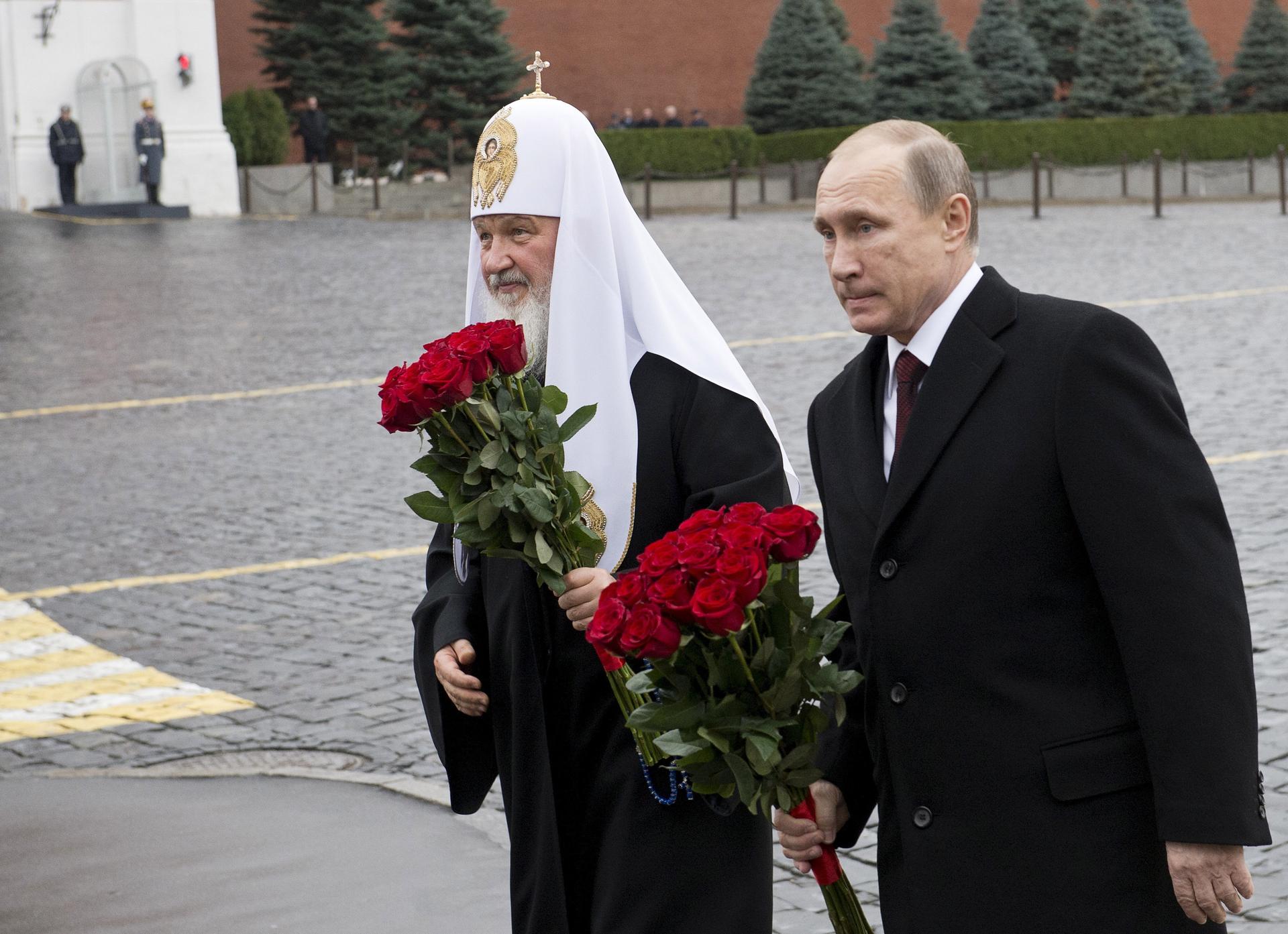ROME – As buzz continues around a possible second meeting between Pope Francis and Patriarch Kirill, head of the Russian Orthodox Church, many within Orthodoxy are calling for Kirill to be tried by church authorities for supporting Russia’s invasion of Ukraine.
Priests of the Ukrainian Orthodox Church of the Moscow Patriarchate are collecting signatures for an appeal to the Council of Primates of the Ancient Eastern Churches for “a lawsuit against Patriarch Kirill.” If found guilty by a pan-Orthodox tribunal, the signatories want Kirill to be deprived “of the right to occupy the patriarchal see.”
The Ukrainska Pravda newspaper first reported the news, quoting a Facebook post by Archpriest Andriy Pinchuk, in which he says, because Kirill is openly supporting Russia’s “war of aggression against Ukraine,” priests of the Ukrainian Orthodox Church in communion with the Moscow patriarchate have decided to make an appeal against him.
Over 320 priests signed the petition in 36 hours, and the list continues to grow.
“Despite the fact that Patriarch Kirill for many years in his public statements (including during visits to Ukraine) stated that he considers the Orthodox Christians of Ukraine to be his flock for which he is responsible, today he directly blesses the physical destruction of this flock by Russians troops,” according to the petition.
The statement says the actions of Kirill caused “outrage” among the clergy and the faithful of the Ukrainian Orthodox Church, and notes that at least fifteen dioceses of the church have officially announced that they will stop commemorating him during services.
However, the signatories add, “this is not enough. We clearly state that it is impossible for us to continue to be in any form of canonical subordination to the Moscow Patriarch. This is the dictates of our Christian conscience.”
Their complaint is rooted in the argument that Kirill and other Russian bishops and priests are in violation of the Fundamentals of the Social Conception of the Russian Orthodox Church, which clearly states that no cleric can cooperate with the state in “waging civil war or aggressive external war.”
“The position of the Moscow Patriarchate on the war against Ukraine does not correspond to the norms of Christian morality, or even to its own normative documents,” says the petition.
Kirill’s full-throated blessing of Moscow’s invasion of Ukraine has splintered the global Orthodox Church, and also the Russian church’s relationship with the World Council of Churches (WCC), which is mulling a debate during its June assembly on the possibility of expelling the Moscow Patriarchate.
Reverend Ioan Sauca, head of the WCC and a Romanian Orthodox priest, said that though he cannot predict the decision of the central committee, “I think it will be one of the hottest issues on the table.”
“My personal opinion? Like many, I suffer, particularly as an Orthodox priest,” he said. He highlighted the many efforts made by the council to stop the war, including a direct appeal to Kirill. However, he also said, “it is easy to exclude, to excommunicate, to demonize; but we are called as WCC to be a platform of encounter, dialogue and listening even if and when we disagree. This has always been the WCC and I would suffer greatly if this vocation were lost and the nature of the WCC changed.”
This attitude of encounter and dialogue might also help explain Pope Francis’s willingness to meet with Kirill, despite the fact that many Catholic priests in Ukraine have told Crux that such an encounter would be seen as a “stab in the back.”
Reuters reported on Monday that the Vatican is considering a possible meeting between Francis and Kirill in Jerusalem, following the pontiff’s visit to Lebanon, penciled in for June 12-13.
Papal spokesman Matteo Bruni acknowledged that it is one of the possibilities being considered for what would be only the second meeting between a pope and the Russian Orthodox Patriarch. The first encounter was when Francis and Kirill met in 2016, at the airport in Havana, Cuba.
The possible encounter had long been rumored, but most observers assumed that after Kirill’s support of the Russian invasion, plans were put on hold, if not suspended altogether. However, in recent days, both sides said the preparations are still ongoing. Francis confirmed this earlier this month, as he was coming back from an overnight visit to Malta.
Follow Inés San Martín on Twitter: @inesanma














